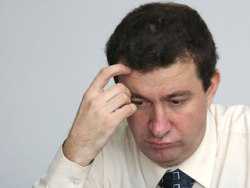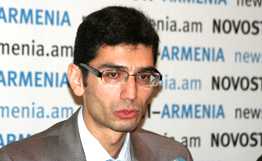Turkey will once more mark the great Armenian tragedy of 1915 — last century’s archetypal ethnic cleansing, with systematic acts of genocide — in a mix of shame and shamelessness, confusion and clarity, ignorance and awareness, denial and admission.
It has been 99 years since the disaster, which changed the human map of Anatolia forever and has remained an issue which needs to be confronted in the name of humanity and conscience, haunting the republic ever since.
Not much has been happening on the official front this time, either. Winds of change, in terms of a rapprochement between Turkey and Armenia, are much weaker. Hopes raised by the process of protocols were buried when Turkish Prime Minister Recep Tayyip Erdoğan, to the surprise of even his foreign policy team, announced at the last minute in Baku that the normalization would not happen unless the Karabakh problem was resolved. This demolition of the process brought all efforts to an impasse.
The political changes in Armenia and Turkey’s growing need for Azerbaijani energy resources do not help those who want to return to an optimistic mode. Needless to say, Russian President Vladimir Putin is rather happy with the status quo, which boosts Russia’s importance in the Caucasus.
Meanwhile, civil society keeps busy. Taboos in the public arena are now gone; those who want to call the events “genocide” are free to do so. Article 301 is no longer applied, and if any prosecution is launched, it dies before it reaches the courts. Debate in the media continues, as does the academic research.
Books pour out, often debating with each other, and bringing new data to light. One of the best in its genre, and of great interest to the reading public, is a detailed account of what happened in İstanbul on April 24, 1915 — when more than 230 Ottoman Armenian intellectuals were arrested in a sweep and sent to death camps in Anatolia — and afterwards. It is written by Nesim Ovadya İzrail, titled “24 Nisan 1915 / İstanbul, Çankırı, Ayaş, Ankara” (April 24, 1915 / İstanbul, Çankırı, Ayaş, Ankara) — a work that needs to be translated into other languages.
Another book, titled “İttihadçının Sandığı” (The Unionist’s Chest), is brand new and based on a large number of letters and documents linked to the high-ranking perpetrators of the genocide, the Committee of Union and Progress (CUP). Its author, Murat Bardakçı, is known to be a fierce denialist, yet continues to publish books which are of deep historic value, such as the secret diaries of Talat Pasha, the architect of the mass deportations.
The new book, Bardakçı says, aims to refute claims that Mustafa Kemal Atatürk, founder of the republic, did not support the Unionists’ acts and later condemned them. Indeed, there are documents and numbers that seem to indicate that Atatürk distributed Armenian properties to his republican team and paid their salaries from Armenian assets. Strong stuff.
Meanwhile, there are activities launched on various levels as the hundredth anniversary approaches. One of them is by the Turkish Industrialists and Businessmen’s Association (TÜSİAD), which aims to bring together experts and historians from Turkey and the Armenian diaspora, as well as international academia, to seek a common ground and language.
The Turkish state keeps busy too, in order to confront the expected wave of criticism from the international community; Turkey, to many people, appears reluctant to face a truth from the remote past. The Foreign Ministry, under the instructions of Minister Ahmet Davutoğlu, is intent on burying the great Armenian tragedy somewhere in the context of World War I, talking endlessly about “fair memory.” But this approach does not seem very promising, when it comes to equating civilians’ and soldiers’ deaths.
On the political level, Prime Minister Erdoğan, having returned to his nationalist self, is categorically against any recognition or regret, let alone an apology. He recently accused some NGOs of being “paid by Armenian lobbies.” Some ministers from the Justice and Development Party (AKP) are now parroting the prime minister, saying that it was Armenians who killed Turks.
But most meaningful is what some people will do tomorrow. The mass human suffering in 1915 will be commemorated in many events in İstanbul and 10 other cities across Anatolia. This is what matters most
Yavuz Baydar
Today’s Zaman





